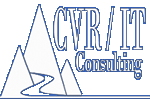Training Services → Beyond the Basics®
Business Analysis: Concepts, Tools and Techniques
|
Course Overview
Business Analysis: Concepts, Tools and Techniques provides an in-depth examination of current Business Analysis (BA) practices. After reviewing core BA concepts, participants engage in numerous hands-on exercises to learn commonly used tools and techniques in enterprise analysis, process analysis, project requirements work, and additional BA roles. Significant focus is placed on what BAs can do to optimize post-project value. The BA role in both waterfall and agile projects is discussed. Topics include:
- The value of Business Analysis
- Roles of the Business Analyst
- BA certification
- Stakeholder collaboration
- Enterprise Analysis
- Business Process Analysis
- Types of project requirements
- Planning for the requirements engagement
- Requirements Elicitation: Tools and Techniques
- Analyzing and documenting requirements
- Verifying and Validating Requirements
- Requirements management
- Solution validation
- BA participation in design and testing
- Post-Project Solution Assessment
Who should attend
This course is of particular value to business analysts, project managers and other project staff with direct or indirect responsibility for requirements definition and analysis; Project Management Office staff; and managers of business analysts.
Prerequisites
This course assumes that participants have participated in some projects and have some understanding of one or more business analyst roles.
Course Outline
Section 1: Introduction to Business Analysis
- Nature of Business Analysis
- Reasons organizations perform projects
- Roles of the Business Analyst
- Value of Business Analysis
- Business Analysis supports project success
Section 2: The Business Analysis Professional
- IIBA®: BABOK Guide®
- PMI®: Business Analysis for Practitioners: A Practice Guide
- Certification programs
- BA Competencies
Section 3: Stakeholder collaboration skills
- Stakeholder identification and analysis
- Building stakeholder collaboration
Section 4: Enterprise Analysis
- Supporting strategic development
- Problem definition
- Root cause and Needs analysis
- Solution identification
- Establishing scope boundaries
Section 5: Business Process Analysis (BPA)
- Nature and goals of BPA
- When BPA is needed: CCC analysis
- How to improve process quality
- BPA roles and tools
- BPA Lifecycle
- Planning the work
- Elicitation techniques
- Process goals and requirements
- Analysis with As-is versus To-be models
- Process improvement
Section 6: Understanding Project Requirements
- Definition of requirement
- Requirement types
- Format of documented requirements
- Business rules
- Business case
- Vision and Scope Document
- Requirements Lifecycle
- Benefits of high-quality requirements
Section 7: Requirements Planning
- Drivers of requirements planning
- Business Analysis Plan
- Requirements Engagement Plan
- Benefits of Planning
- Roles and Responsibilities
- BA - PM Synergy
Section 8: Requirements Elicitation: Tools and Techniques
- Requirements elicitation
- BA Skills that support elicitation
- Elicitation versus gathering
- Stages of elicitation
- Elicitation techniques
- Asking good questions
- Facilitation skills
- Active listening
- Requirements versus design
- Choose the best elicitation technique
Section 9: Analyzing Requirements
- Requirements Analysis activities
- Structure the requirements
- Requirements analysis models
- Review models with stakeholders
- Transition requirements
- Prioritizing requirements
Section 10: Documenting Requirements
- Requirements documentation options
- Requirements quality characteristics
- Consequences of poor requirements quality
- The Use Case Model: Diagrams and scenarios
- Writing the requirements document
- Consequences of poor document quality
Section 11: Verifying and Validating Requirements
- Verification and Validation
- Requirements Traceability
- Validating the requirements document
- Requirements approval
Section 12: Additional BA Functions
- Participation in design
- Roles in requirements management
- Requirements Traceability Matrix
- Requirements re-use
- Requirements communication
- BA role in testing
- Solution Validation
- Post-Project Solution Assessment
Final Review and Q&A
This course includes over 35 hands-on exercises that reinforce comprehension and retention.
Learning Approach
- A BA certified instructor will use interactive lecture format, numerous hands-on exercises, team activities, group discussions, and other techniques to drive home the essential points of this material
- We will build on your prior experience in this topic, while providing you with a structure and vocabulary to use in all of your future projects.
- If you have modest understanding of the Business Analyst role, you will find that the clarity of the material and direct presentation style of the instructor will make the subject matter easy to understand.
- You will receive a Participant Guide which will help you follow the material, take notes and retain what you learned so that you can apply it on your job.
Why should I take this course?
- Experienced Business Analysts will acquire a broader understanding of the many roles possible in their profession.
- If you are new to Business Analysis, the exercises in this course will give insights into essential concepts and techniques.
- All participants take home a set of tools and techniques to help them deal with all aspects of Business Analysis. This includes a full set of commercial-grade BA templates.
- Take this course and learn how to avoid many of the problems that Business Analysts most often encounter.
Licensing
Use this courseware to teach your students! This course is available under license to qualified Training Providers. Courseware materials include:
- Instructor slides
- Instructor manual with timing guide
- Printed participant guide
- Train the Trainer instruction
- Written for classroom or virtual delivery
For more information, see
Courseware-On-Demand or Contact Us
Every course and workshop in our Project Training program is fully customizable. We offer virtual delivery of the training program you need. Call us: +1.919.495.7371.
All of our courses are fully compliant with the latest release of each relevant standards document such as the PMBOK® Guide, Standard for Portfolio Management, BABOK® Guide, and others.
|
